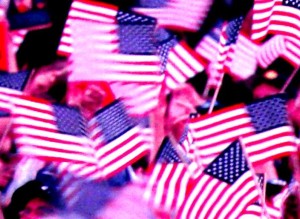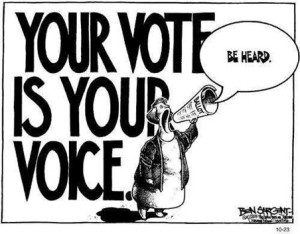 The greatest engine for political freedom is the freedom to have a say in your government, to choose who represents your interests, to vote. Too many failed to exercise this hard won right in the recent election.
The greatest engine for political freedom is the freedom to have a say in your government, to choose who represents your interests, to vote. Too many failed to exercise this hard won right in the recent election.
When the barons of England confronted King John in 1215 in London with force of arms, the King agreed that the Barons could overrule the King should he break the agreement he made with them. King John broke his word the instant the Barons left London. But the Magna Carta was an aspiration to defy the monarch and was found by Sir Edward Coke to encompass not only the nobles but all the subjects of the crown.
Our Virginia Charter of 1606 was drafted by Sir Coke and it said we would enjoy all the liberties of any Englishman.
But that’s not what happened.
When Thomas Jefferson wrote that governments derive “their just powers from the consent of the Governed,” it was because King George III governed without our consent. Jefferson charged in the Declaration of Independence that the King “dissolved [our] Representative Houses” because they opposed “with manly Firmness [the King’s] Invasions on the Rights of the People,” “impos[ed] taxes …without our consent,” and unilaterally decided the laws that bound us.
50,000 colonials killed or wounded was the price we paid in a revolution to represent ourselves.
In our Constitution in 1787, “we the people” pledged that we would “form a more perfect union,” and our institutions have since become “more perfect,” extending the vote to persons of color, and to women, and having Senators chosen by the people instead of by the several state legislatures.
There are nation-states where the people are forced to vote and taxed if they don’t. Not here.
There are nation-states that intimidate and brutalize those who vote the wrong way. Not here.
When I was a young New York federal prosecutor, we would draw duty on Election Day to respond to any allegation of voter fraud. I never got a call. Of the hundreds of millions of votes cast in the United States, there is only a handful of persons nationwide ever prosecuted for voter fraud.
In seeking that more perfect union, Congress passed the Civil Rights Act of 1964 to outlaw discrimination against voters.
In response to the 2000 election, Congress passed the Help America Vote Act, reforming how we vote and setting standards for voting.
We have more work to do to “perfect” our system.
But we have the vote.
The shame of course is that many don’t vote.
Apathy, skepticism, ideological opposition compromise the right of the public to say how they are governed, enabling the cynical to game caucuses and primaries with fewer voters, making forced choices in general elections, again with fewer voters.
The history of individual liberty is the fight to vote. When we don’t vote, we put at risk our liberty. So let us vote if we would be free!
 This year we have we have many elective posts in Loudoun County that will be filled with candidates in opposition to each other for the countywide board of supervisors, for constitutional offices, for the school board, for the soil and water board, and for the general assembly.
This year we have we have many elective posts in Loudoun County that will be filled with candidates in opposition to each other for the countywide board of supervisors, for constitutional offices, for the school board, for the soil and water board, and for the general assembly.
